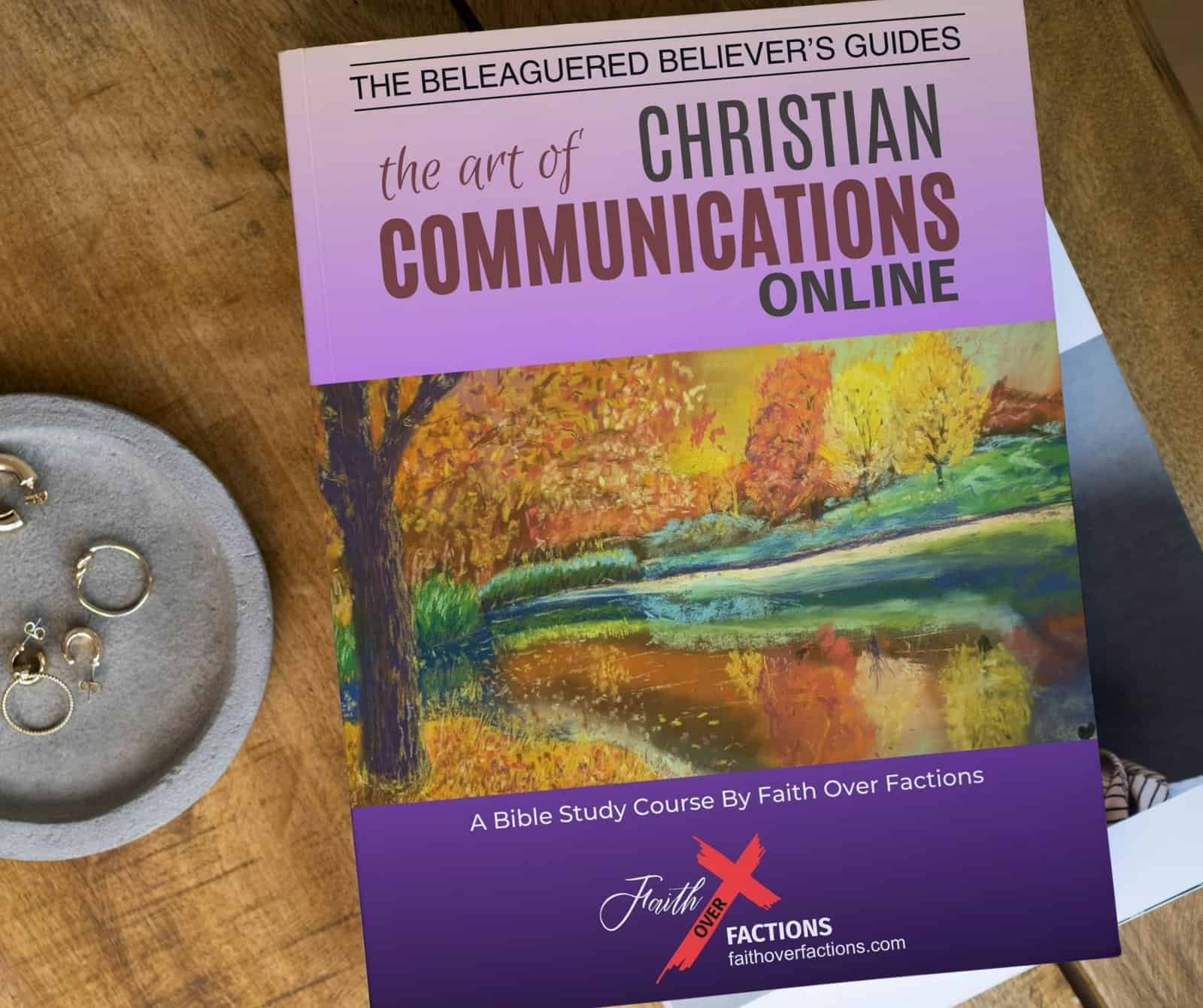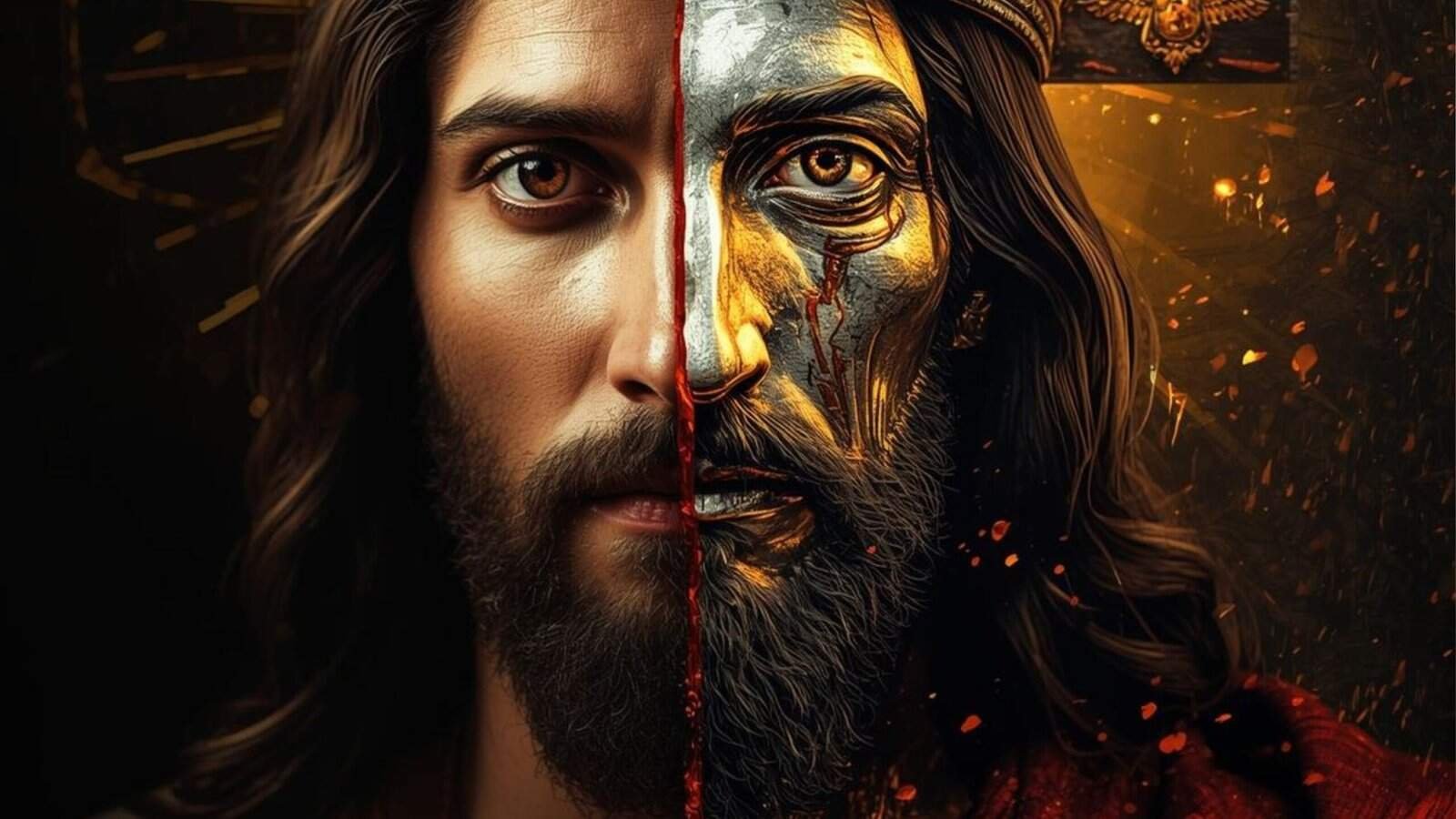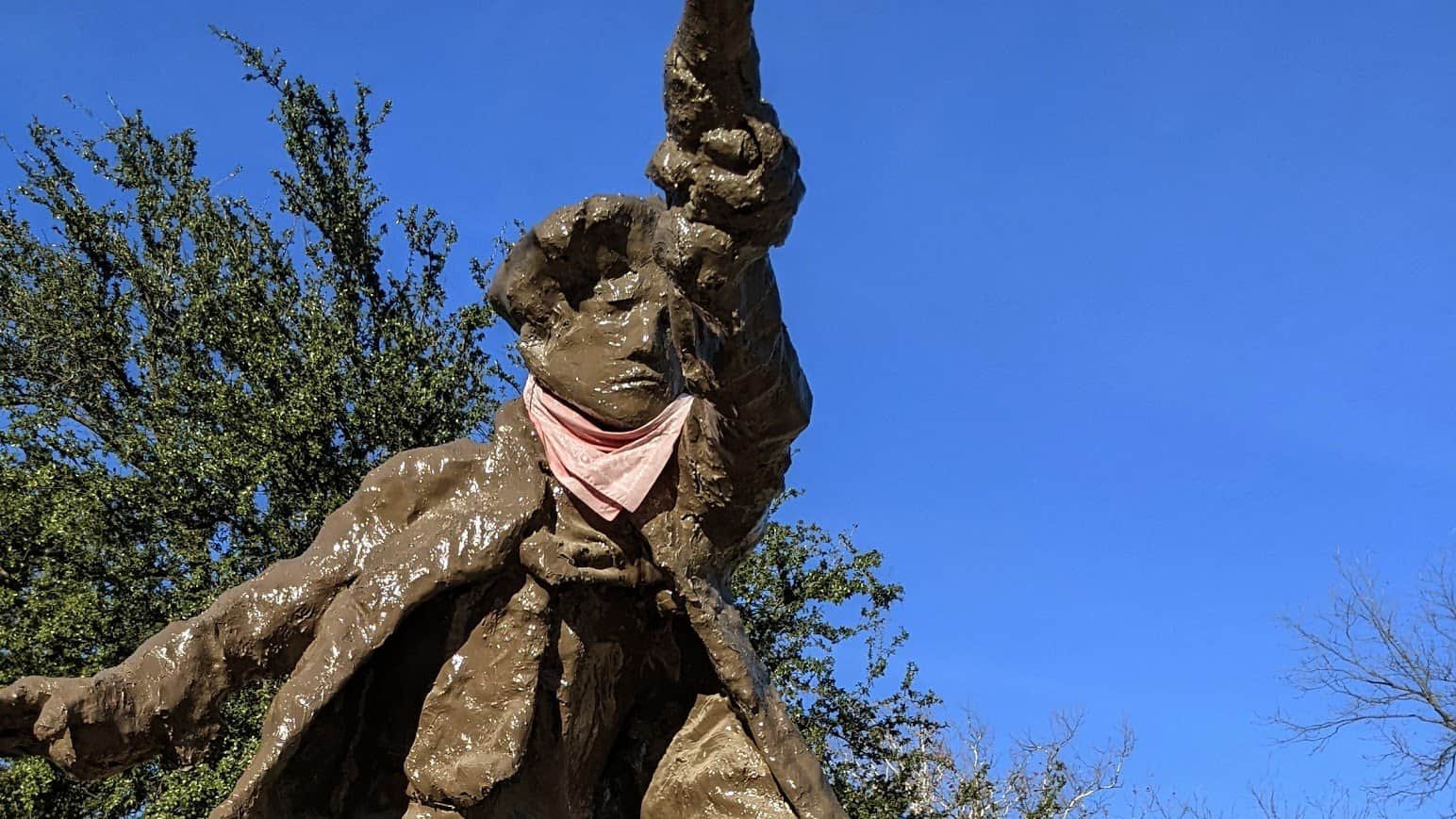
I’ve tried not to speak directly about our modern Caesars, but silence can become its own kind of participation.
A friend said to me recently, “Donald Trump is being used by God to do much good.”
I believe the first 2/3rds of that statement.
And not in the way it was meant.
Trump has become a mirror—a reflection of the American soul. In him, we see everything our culture has chosen to worship: dominance, spectacle, money without conscience, praise without humility, grievance without grace, injustice without remedy, power without restraint, cruelty without mercy. All served up with the sins that destroyed Sodom
Ezekiel 16:49 (Amplified Bible)
“Behold, this was the sin of your sister Sodom: she and her daughters (pride, arrogance, gluttony, and tranquil prosperity) had abundance of food and careless ease, but she did not help the poor and needy.”
Trump didn’t create the sickness. He reveals it. And God often allows that kind of mirror to rise so a people might finally see themselves clearly and repent. Fortunately for the United States there are Intercessors who pray and Prophets who will not be silent.
When I look at this moment in history, I don’t see a politician and a Christian Nationalist movement that props him and his circle up. I see a prophecy fulfilled, not in triumph but in exposure.
Anchor in the Word
Key Verse:
Give to Caesar what belongs to Caesar, and give to God what belongs to God
Matthew 22:21, NLTKey Scripture Context
Jesus said this after His opponents tried to trap Him. They wanted Him to choose sides—empire or rebellion, Rome or Israel. But He refused their game. He lifted a coin, asked whose image was on it, and answered in a way that pierced both sides: Caesar’s image belongs to Caesar. God’s image belongs to God.
The lesson was never about taxes. It was about allegiance.
The Catalyst
When believers say a leader is being “used by God,” they often imagine that means approved by God. But Scripture rarely works that way. God used Pharaoh to reveal His power. God used Saul to reveal what happens when pride devours obedience. God used Ahab and Jezebel to expose Israel’s unfaithfulness and the corruption of worship that comes when power seduces the priesthood. God used Nebuchadnezzar to humble nations and discipline His own people.
To be used is not always to be blessed. A.W. Tozer once warned, *“When religion has said its last word, there is little that we need other than God Himself.”*¹ To cling to instruments rather than the hand that wields them is to build altars to our own understanding.
When we mistake worldly victory for divine favor, we forget that the kingdom of God is not of this world. It does not rise on the backs of the humiliated. It does not need propaganda or mobs. It needs hearts that belong wholly to the Lamb.
The Mirror Revelation
There’s a reason this particular figure draws such fierce devotion. He promises power to those who fear losing it. He tells the disillusioned that their anger is holy. He baptizes resentment with patriotic fervor. In doing so, he mirrors the deeper wound of a nation that never learned the difference between being chosen and being entitled.
Arthur Pink wrote that *“The great mistake made by most of the Lord’s people is in imagining that the world’s smile means God’s approval.”*² Our age confuses triumph with anointing, forgetting that Jesus’ crown was made of thorns.
We see in him what we’ve quietly admired all along: the confidence to never apologize, the audacity to call cruelty strength and injustice righteosness. And that should break our hearts.
When God holds up a mirror, it’s not to humiliate but to heal. Yet healing only comes when we recognize our own reflection and stop defending the infection. When we heed the call to repentance.
The Heart of Idolatry
Christian idolatry doesn’t look like golden calves anymore. It looks like flags wrapped around crosses. It looks like pulpits turned into campaign stages. It looks like believers praying not for mercy but for the downfall of their enemies.
The idol of power always demands sacrifice. It asks us to give up compassion to feel strong, to abandon truth so we can belong, to trade the humility of Christ for the swagger of Caesar. And when we do, we no longer bear the image of the One who saved us. We bear the image of the one we’ve chosen to follow.
Charles Spurgeon once said, *“Of all idols, self is the most detestable.”*³ The idol of nation, like the idol of self, feeds on pride. It makes us think we are defending righteousness while secretly guarding privilege.
Smith Wigglesworth, blunt as ever, once declared, *“The reason the world is not seeing Jesus is that Christian people are not filled with Jesus.”*⁴ His point was not condemnation but exposure—when we fill ourselves with power, there is no room left for Christ.
The tragedy of our age is that the Church, meant to be the conscience of the nation, has become its marketing arm. We sell outrage and fuel it with culture wars. We brand resentment as holy fire. Then we call it “revival.” But no revival ever began with the idolatrous worship of the mirror and the image it shows us.
The Call Back to Allegiance
Jesus’ words still stand like a dividing line through history: Render to Caesar what is Caesar’s, and to God what is God’s.
That coin carried Caesar’s image. Your soul carries God’s.
Give the state your taxes, your civic duties, your responsible participation. But never give it your worship. Never give it the part of you that belongs to mercy, forgiveness, and truth.
Every time we defend cruelty in the name of national greatness, we hand over a piece of God’s image. Every time we justify lies for “our side,” we surrender what belongs to heaven. Every time we honor those who hoard wealth while condemning the vulnerable and marginalized we violate the heart of the gospel. The coin bears Caesar’s face, but your face—your capacity to love, to repent, to forgive—bears God’s.
What does it mean, then, to render to God what is His? It means to restore His likeness where we’ve distorted it. It means to return to humility, to walk with compassion again, to confess that we’ve confused influence with anointing and applause with fruit.
Arthur Pink put it plainly: *“Faith is not a mere sentiment; it is a practical principle which governs the life and shapes the conduct.”*⁵ The measure of our allegiance is not the flag we wave, but the cross we carry.
Prophetic Lament and Hope
God’s judgment isn’t always fire from heaven. Sometimes it’s simply a mirror.
When He allows corruption to rise, it’s mercy, not cruelty. He is showing us what we’ve become so we might repent and live. The mirror is mercy before destruction.
Smith Wigglesworth said, *“If you seek nothing but the will of God, He will always put you in the right place at the right time.”*⁶ Judgment is not rejection—it is repositioning. God shakes the idols of His people so they might remember who they are.
There is still time to return what belongs to Him. There is still time for the church to remember that our strength is not found in elections, presidents, armies, or courts. It is found in the cross.
Jesus conquered by surrendering. He reigned by serving. His crown was made of thorns, not gold. That is the kingdom we belong to—the one that can never be legislated or voted in, only lived out.
Let us weep, then, not as those without hope, but as those who finally see clearly.
Prayer Prompt
Lord, reveal in me any allegiance that has replaced You. Where I’ve worshiped strength instead of mercy, pride instead of love, tear down my idols and make my heart whole again.
More Light for the Journey
Micah 6:8 (NLT) – “He has shown you what is good, and what the Lord requires of you: to do what is right, to love mercy, and to walk humbly with your God.”
When humility becomes the ground of our living, no idol can stand. Micah reminds us that God’s requirements have never changed—justice, mercy, and humility are still the true measures of faithMatthew 23:12 (NLT) – “Those who exalt themselves will be humbled, and those who humble themselves will be exalted.”
Jesus exposes the hollow promise of self-exaltation. Every empire—political or personal—built on pride will fall beneath the weight of its own deception.Matthew 6:21 (NLT) – “Wherever your treasure is, there the desires of your heart will also be.”
What we defend most fiercely reveals what we worship. If our treasure is influence, we will fight for it. If our treasure is Christ, we will surrender all else to follow Him.Romans 12:2 (NLT) – “Don’t copy the behavior and customs of this world, but let God transform you into a new person by changing the way you think.”
Transformation begins when we stop trying to sanctify worldly patterns and allow God to rewrite our loyalties from the inside out.
Let’s Walk This Out Together
This is not a call to withdraw from the world, but to return to our true citizenship. The church is not meant to mirror the culture’s hunger for dominance. We are meant to mirror the compassion of Christ.
If the mirror of this moment feels harsh, remember: it reflects what God still loves enough to redeem. The exposure of idolatry is the prelude to mercy. When we give back to God what bears His image, we begin to look like Him again.
So stand in that light. Let the mirror do its work. And when the reflection becomes painful, remember—pain is often how grace begins.
Journaling Prompts
Where have I confused power with righteousness?
What image am I reflecting to others—the world’s, or God’s?
When have I defended cruelty under the banner of faith?
What does it mean for me, personally, to render back to God what is His?
How can I practice humility and compassion in the face of cultural rage?
Footnotes
- A.W. Tozer, The Pursuit of God (1948), Chapter 1.
- Arthur W. Pink, The Sovereignty of God (1918), Chapter 3.
- Charles H. Spurgeon, Sermons on the Ten Commandments, “The First Commandment.”
- Smith Wigglesworth, quoted in Smith Wigglesworth on Spirit-Filled Living (Whitaker House, 1999).
- Arthur W. Pink, Practical Christianity (1935).
- Smith Wigglesworth, Ever Increasing Faith (1924).







